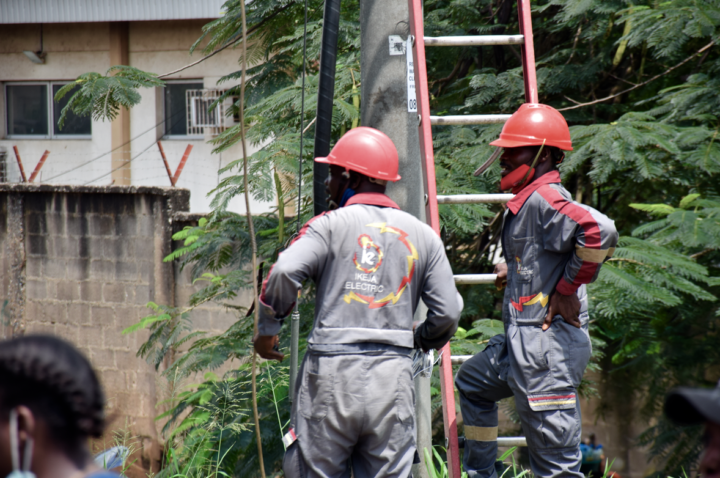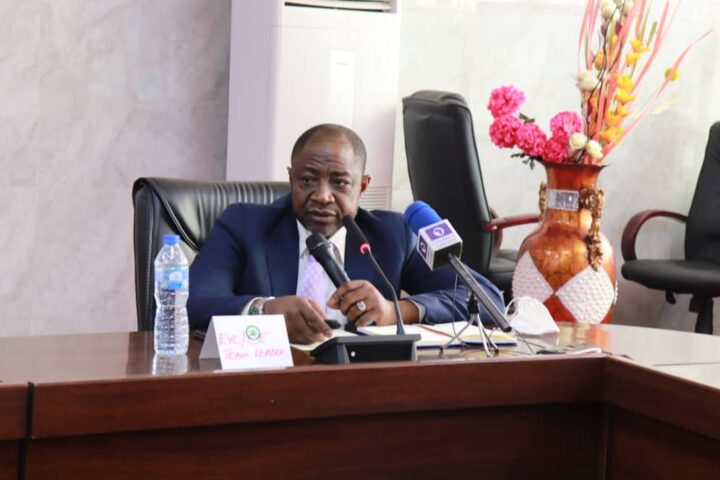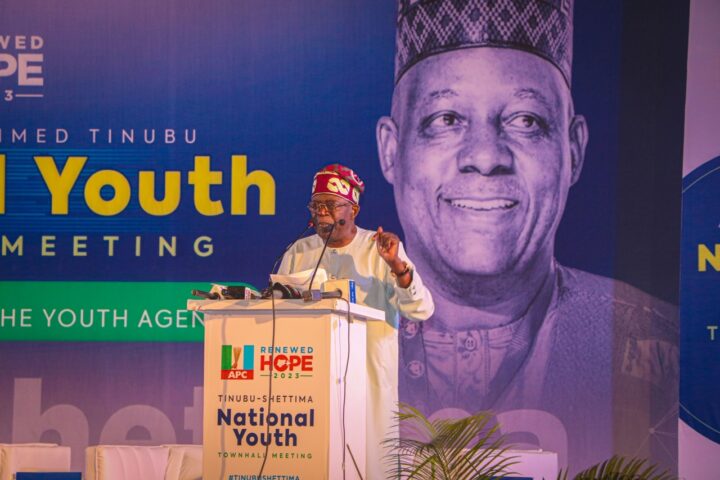The National Union of Electricity Employees (NUEE) has taken a swipe at the federal government over its injection of “N3 trillion” into private electricity companies.
Joe Ajaero, secretary-general of NUEE, expressed his concerns on Thursday during the public hearing on a bill to amend the electric power sector reform act, 2005.
The amendment of the bill intends to provide the legal and institutional framework for the implementation and coordination of rural electrification projects; establishment of the national power training institute; and regulatory provisions to strengthen the sector for efficient service delivery and for related matters.
Ajaero, speaking on the power sector, said despite the funds pumped into the private companies, there has been no commensurate increase in power generation over the past 10 years.
Advertisement
He argued that privatisation has further compounded Nigeria’s economic woes, adding that the policy was designed to fail from the onset.
“There has not been meaningful improvement or contribution by the current investors nine years after privatisation and 17 years after the electric power sector reform act, 2005 was signed into law,” the union leader said.
While stressing the need to review the entire privatisation exercise, Ajaero said the union’s position on privatisation was clear, but expressed worried on whether “these amendments are critically based on the public where we belong now”.
Advertisement
“Having tried privatisation for 10 years, and we are doing just the amendment of sections of the act and even the review provision in the act which gives provision for the review of the sector after five years and we have written consistently and it has not happened,” he said.
“This act, are we really obeying it? If there is provision for review after five years, and Nigerians are groaning, consistently Nigerians are complaining and we say privatisation was based on the fact that government doesn’t have any business in it and government is pumping in money to an individual’s business.
“As we speak now, almost N3 trillion has been pumped into the power sector which wasn’t there when it was owned by the government. So what’s the logic to say government has no business in business and government now has to pump and fund the business of another man. And we need to sit down and see what is working for us.
“That is why we came here to say the laws we made by ourselves, we can pause and look at it and move on. Since nobody has to talk about reversion of privatisation, but let us see how it can fit us.
Advertisement
“As we are speaking today, the issue of tariffs is on, if government is pumping in trillions and Nigerians are being compelled to pay, you can see what is happening, the country is suffering.”
FUNDS SHOULD BE RE-CHANNELLED TO ECONOMY
Ajaero noted that before privatisation, government expenditure on the power sector was minimal.
As such, he said funds plunged into the private electricity companies could be used to develop the economy.
Advertisement
“If you put N2 trillion in the economy of Nigeria today it will thrive, but it is being pumped into businesses owned by individuals,” he said.
“What is the cost benefit analysis of this if we have to take our money? Go and check the records, for about 10 years before privatisation, government didn’t put 10 percent of that money into the sector but it’s putting it now.
Advertisement
“For another 10 years, no increase in generation, no conscious master plan. There is no plan in the country that by next year, power plants will come into the system. None for the next two years nor three years for power generation to be constant at 4,000 megawatts, and demand will continue to increase because more houses will be built and connected.
“So if this is reduced to a public hearing and no action is taken further on how to make the system work, Nigeria will still be at the bottom of countries suffering power poverty all over the world.
Advertisement
“The normal concept is one million people to one thousand megawatts, and we have a country of 200 million people with four to five thousand megawatt, nobody is talking about it.
“During the Babangida era, there was a feasibility study on Mambila which had the capability of giving what we are having in this country today and from that period till now nothing has happened. The same thing was applicable to Zungeru.
Advertisement
“The union doesn’t want to bask in the euphoria of the act/law which does not provide one megawatt to the system. The union doesn’t want to bask in the euphoria of having 19 companies, 19 managing directors and executive directors on 4,000 megawatts.
“The company that was owned by one ED before will now multiply. The multiplication of 19 successor companies did not add one megawatt. So what’s the honest sense of sweeping in 200 companies knowing the generation is constant?”
According to NUEE boss, to address the myriad of challenges facing the sector, there is need for a review of shareholding of the industry.
“The option of government controlling 60 percent shares of the facilities as against the present 40 percent (inclusive of the negotiated 10 percent equity shareholding for staff in line with the laws setting up the National Council on Privatisation (NCP) is imminent as the private sector operators have clearly shown lack of capacity to construct a simple power plant since the last 9 years,” he said.
“Besides, the federal government has continued to fund the sector. Available statistics shows that about N400 billion was realised from the privatisation of the power sector with the federal government investing over one trillion thereafter.”
FG DENIES INDISCRIMINATE TARIFF HIKES
Meanwhile, Goddy Jedy-Agba, minister of state for power, who spoke during a media chat with journalists on the presentation of Ajaero on arbitrary increase of electricity tariff, denied knowledge of the ‘indiscriminate electricity tariffs’ imposed by Nigerian Electricity Regulatory Commission (NERC) on consumers.
In his earlier remarks, Magaji said the public hearing addressed the concerns raised by the Nigeria Governors’ Forum (NGF).






